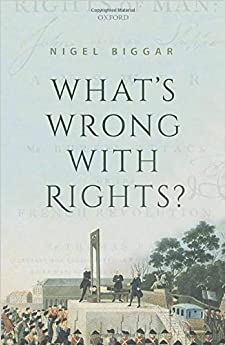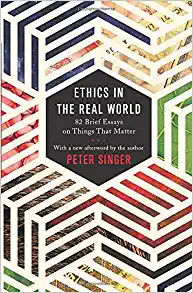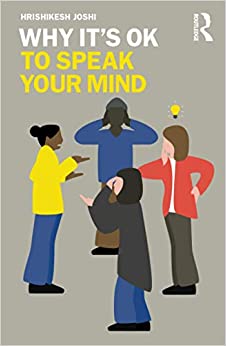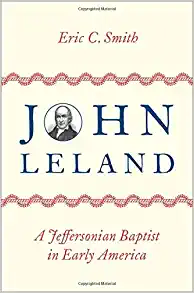Today is officially the first day of summer, even if it has been blazing hot in the South for the better part of two weeks. With grading done, papers (nearly) done, and a number of major conferences wrapped up, I am officially shifting into summer mode and looking forward to digging into some of my planned summer reading. I realize that for many of us we still have a number of responsibilities, but hopefully you can slow down a bit and take a break over the next few months. As you plan out your summer reads, here is a list of a few top books I am looking forward to reading or have just recently completed.
1) Saint Thomas Aquinas by GK Chesterton
In recent years, there has been a bit of controversy over the retrieval of Aquinas in Protestant theology and ethics. Aquinas can be a daunting figure for most of us, especially if we haven’t spent a ton of time reading his many works, including his magnum opus Summa Theologiae. I am currently working through this short volume by Chesterton on Aquinas and highly recommend it. This little book isn’t your traditional biography of a famous figure but does help to shed some light on the recovery of Aquinas in Chesterton’s time as well as position him in the history of the Church. Chesterton notes at one point that everyone’s thoughts and ideas are in some ways a response to what came before them, but many fail to examine a person in light of those ideas they are responding to and in which case miss much of what a figure is trying to do in their work. If you want to learn a little more about Aquinas’ works and his importance in today’s church, make sure to check out a recent interview I did with Dr. Matthew Barrett on the doctrine of the Trinity for the Digital Public Square podcast.
2) What’s Wrong with Rights? by Nigel Biggar
As part of some ongoing research into the nature of human rights from a Christian perspective, I have recently really enjoyed this volume by Nigel Biggar. So much of our contemporary culture is centered around the concept of human rights, even if the foundations of those rights being claimed often go unexamined and unquestioned. In this volume, Biggar offers a sweeping overview of the history of rights talk as well as many of the common ways we talk about rights in our societies today. He distinguishes between natural, moral, universal, absolute, and legal rights before concluding that natural and moral rights do not truly exist even if we claim legal rights in light of some versions of natural morality.
3) Ethics in the Real World by Peter Singer
As I noted in a recent article on the nature of religious freedom in contemporary society, I recently came across this volume of 82 short essays by the influential moral philosopher Peter Singer. In this wide ranging collection, Singer addresses a host of contemporary ethical issues through the lens of his preferred utilitarian framework. While I obviously disagree with many of his conclusions, it is nevertheless a helpful volume to be familiar with as Singer’s influence on ethics is unparalleled in recent generations. This volume has opened up much of Singer’s ideas on ethics to me and I am looking forward to diving deeper into his collection of works this summer and fall. I hope this volume will become a staple as I teach ethics because of how important it is to engage ideas that you disagree with in order to know what you really believe better.
4) Why It’s OK to Speak Your Mind by Hrishikesh Joshi
I was recently asked to review this book for a journal of moral philosophy and have been looking forward to digging into this unique series concept and volume from Routledge. Joshi is an Assistant Professor of Philosophy at Bowling Green State University, specializing in moral and political philosophy. Given how common issues like ‘cancel culture’ have become and how it is increasingly costly to speak your mind, especially on hot-button social and political issues, this volume by Joshi draws from thinkers like Aristotle, John Stuart Mill, Friedrich Nietzsche, Bertrand Russell, and more to argue for the moral necessity to speak your mind and to engage in thoughtful debate over the issues that matter.
5) John Leland: A Jeffersonian Baptist in Early America by Eric C. Smith
In recent weeks, there has been a good deal of discussion and debate about the centrality of religious freedom to the Baptist tradition. Smith is a leading church historian and recently was appointed as an Associate Professor of Church History at The Southern Baptist Theological Seminary in Louisville, Kentucky. John Leland was an early American pioneer for religious liberty and a formative voice in the relationship of church and state. We recently were joined by Dr. Smith for an ERLC Research Institute gathering this spring and I have really been looking forward to this volume since there has been such little written about this influential Baptist leader.
The Rundown
Six Modern Theologians Every Thoughtful Person Should Read – Bruce Ashford | First Things
Judging those responses to be aberrations from historic Christian teaching, the theologians on the following list attempted to carve out a more faithful path for post-Enlightenment Christianity.
To battle deepfakes, our technologies must track their transformations – Sam Gregory | The Hill
These scenes from the war provide a glimpse into a future where, alongside existing forms of manipulation and misattribution, deepfake technology — images that have been “convincingly altered and manipulated to misrepresent someone doing or saying something that was not actually done or said” — will be more readily employed
Same-sex marriage advocates push for post-Roe protections – Sam Metz | AP
As the nation awaits a decision from the U.S. Supreme Court regarding a Mississippi law that calls for banning abortion after 15 weeks of pregnancy, LGBTQ advocates are pushing to codify protections for same-sex marriage in states throughout the country.
Lawmakers reignite battle for federal privacy law – Margaret Harding McGill | Axios
The U.S. has lagged behind the E.U. and China in establishing national privacy rules for online platforms, but this bipartisan effort shows signs of life even as the looming midterms mark the unofficial end of legislating.
Has a Google AI Become Sentient? – Klon Kitchen | The Dispatch
Last weekend, an interesting story was published about a Google engineer who has been suspended after publicly claiming that one of the company’s artificial intelligences (AI) has become sentient.
Welcome to the summer of robots – Jennifer A. Kingson | Axios
As brainy machines take over tasks as diverse as chopping vegetables, driving trucks and assisting the elderly, the human labor force will see major shifts in what jobs are needed.




